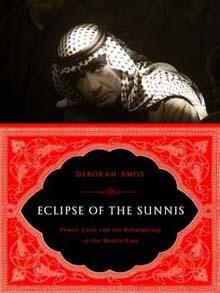 The destruction of Saddam Hussein’s regime in 2003 created a power vacuum in the center of the Middle East. Nearly a decade of sectarian warfare and chaos ensued as militants from various communities fought mercilessly for control of Iraq. Ethnic, tribal, and religious divisions proved to be stronger than any unifying national Iraqi identity after the Ba’athist regime collapsed. Ultimately, the Shiites, who comprise 60-65 percent of Iraq’s population, won control of the state. The Sunnis lost and fled into Syria, Lebanon, and Jordan by the millions to escape the horrors of civil war and the reality that their sect would not rule Iraq in the post-Saddam era.
The destruction of Saddam Hussein’s regime in 2003 created a power vacuum in the center of the Middle East. Nearly a decade of sectarian warfare and chaos ensued as militants from various communities fought mercilessly for control of Iraq. Ethnic, tribal, and religious divisions proved to be stronger than any unifying national Iraqi identity after the Ba’athist regime collapsed. Ultimately, the Shiites, who comprise 60-65 percent of Iraq’s population, won control of the state. The Sunnis lost and fled into Syria, Lebanon, and Jordan by the millions to escape the horrors of civil war and the reality that their sect would not rule Iraq in the post-Saddam era.
Deborah Amos’ Eclipse of the Sunnis: Power, Exile and Upheaval in the Middle East examines the plight of these Sunni refugees. Amos’ work helps explain how the largest refugee crisis in the region has further destabilized the Arab world and deepened the sectarian divide throughout the Middle East. Moreover, Iraq’s future is directly tied to the outcome of this refugee question. If these refugees never return home, Iraq will suffer from the “brain drain” effect because many of these Iraqis constituted an educated middle class.
The refugees whom Amos met in Damascus, Beirut, and Amman were predominately Sunnis who fled Iraq due to sectarian violence. The victims of car bombings, beheadings, kidnappings, and torture throughout Iraqi neighborhoods were mainly targeted because of their sectarian identity. Stories of armed militias taking over neighborhoods and killing civilians because of their Shiite or Sunni identity, or alleged ties with the U.S. military, were common. Many refugees accused the Maliki government of seeking to create an Iraqi state defined by Shiite identity where “there [is] little hope of restoring Baghdad’s historic character, a city where Iraq’s rich sectarian mix once lived side by side.” Although most of the refugees expressed a desire to return, practically all believed that a Shiite-ruled Iraq would not offer Sunnis protection. Maliki’s description of Iraqi refugees as “cowards” or “traitors” has only confirmed perceptions of his government as, at best, insensitive or, at worst, hostile toward Iraq’s Sunni population.
Amos describes how the sectarian violence in Iraq has spilled into neighboring states. She discusses how Salafi jihadists from all over the Arab world entered Lebanon to enlist Sunni Lebanese from Tripoli and the Bekaa Valley to join the Sunni insurgency in Iraq and prevent the Shiite from gaining further control in Lebanon.
Fatah al Islam, a multinational militant Sunni group based in Palestinian refugee camps in Lebanon, entered Lebanon to recruit Salafis to wage jihad against U.S. forces and Shiites in Iraq. This group almost brought Lebanon back into civil war when it fought the Lebanese army in a showdown that lasted over 100 days in summer 2007. One year later, the Shiite militia Hezbollah flexed its muscle by taking over the airport and the streets of West Beirut . The Sunni residents of Majd al Anjar responded by seizing the roadway along the Lebanese-Syrian border. As a result, no Shiite Lebanese were safe travelling near the border.
Iraq’s female refugees have undergone an especially harsh experience abroad. Amos references discussions with Iraqi women in Damascus who resorted to prostitution as a means of survival. “Widowed, divorced, or separated from husbands by the war, many women had children or elderly parents to support,” she writes. “Sex was often their only marketable asset.” In Damascus, Iraqi parents pressured their daughters as young as ten into the industry, renting them to wealthy Saudi tourists. Female refugees entering the sex industry as a means of survival is a common occurrence worldwide and not unique to the Middle East. However, the cultural taboos surrounding prostitution in Arab societies make the experience particularly difficult for Iraqi women. When a woman “dishonors” her family (by engaging in certain conduct, such as prostitution), the shame is extended to all family members. Amos spoke with numerous female refugees in the sex industry who stated that their fear of falling victim to “honor killings” prevents them from returning to Iraq, even if stability is achieved.
Despite the conditions that pressured millions to escape Iraq, these refugees remain proud of their cultural heritage as they uphold Iraqi traditions while in exile. Since 2003, many Iraqi restaurants have opened in Damascus. Many artistic Iraqi refugees in Syria have told their stories deep nostalgia, sadness, fear, and pessimism through film, theater, and standup comedy. Outspoken refugees, however, have received threatening messages from Baghdad warning them not to return.
Iraq’s future depends in part on reconciliation between the Maliki government and the exiled Sunni Iraqis. Iraq’s Sunni exiles, a middle-class of educated secular professionals, would be helpful in efforts to rebuild a civil state of democratic institutions and political tolerance. A failure to achieve reconciliation would undermine the prospects for regional stability, as well as force Iraq to suffer the “brain drain” effect. Eclipse of the Sunnis is an important contribution to any discussion about these millions of exiled Iraqis and the role that they play in the future of Iraq and the greater Middle East.